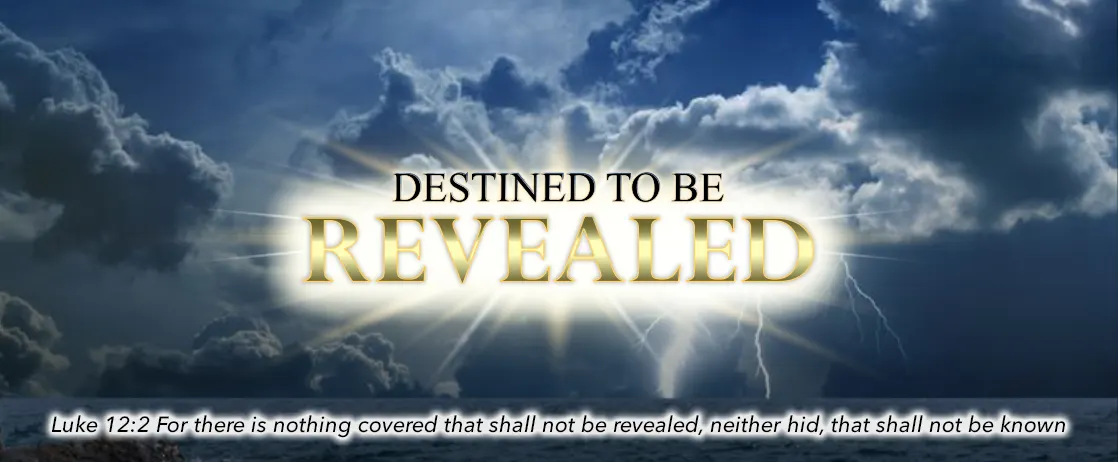Article List
- The Lord said to my Lord
- Protected: The LORD said unto my Lord
- One God who Saves named Yahweh
- No man might be able to buy or sell
- Call upon the name of Yahweh
- Messiah came forth from the Father
- Yahweh Alone Is Savior
- You must be Born Again to Be Saved
- The Word of Yahweh
- The promised Messiah
- If my people which are called by my name
- Protected: Christ does not sit at the right hand of God
- Choose you this day Whom ye will Serve
- Who Are the Israel of God
- Yahshua is Not a Name
- Genealogy of Jesus Christ
- God and Father of our Lord
- I AM the vine and you are the branches
- The lying pen of the scribes
- Conspiracy against The Messiah
- Covenant replacement theology
- The Second gathering of Israel
- Protected: Pray to the Father in the name of Jesus
- Are we under the Old Covenant Law
- The True Israel of Yahweh
- The New Covenant of Messiah
- He has risen from the dead
- Doctrine of the Trinity Deception
- The greatest gift that will ever be given
- Can I Have The Assurance of Salvation
- One Shall Be Taken And The Other Shall Be Left Behind
- The Abomination of Desolation
- Rightly dividing the Word of Truth
- Understanding the Gospel truth
- Who Is Left Behind at the Rapture
- End Times Prophecy is Revealed
- Once you are saved you are always saved
- Protected: False Preachers in the Church – Wolves in Sheep’s Clothing
- The name of Yahweh
- Protected: False Teachers In The Church
- Obey them that have the rule over you
- Uncovering the true Word of God
- Confirm the covenant with many
- Protected: Identification of a Christian Cult
- Proof The Trinity Doctrine Is False
- Teachings of Messiah or the doctrines of men
- The identity of the Great Whore
- The Great Whore is not Mystery Babylon
- Mystery Babylon is Revealed
- Does the Fourth Seal reveal the False prophet?
- When He opened the first Seal – the false Messiah?
- The Beast & the fourth World Kingdom
- You shall be hated of all men
- Spiritual Chameleons have a form of Godliness
- The Mystery of he who now restrains
- Mark of the Beast and the Seal of Yahweh
- Protected: Should Christians keep the Sabbath
- Protected: Christians are not required to Tithe
- Protected: Great Deception within Christianity
- The New Covenant Law
- End Time Revelations are Revealed
- One fold and one shepherd
- Women remain silent in the Church
- He as god sits in the temple of god
- The Thousand Year Reign of Messiah
- The Redeemed of The Lord
- The Wrath of Yahweh eternal separation
- False Teachers In The Christian Church
- Sealed With The Holy Spirit
- Pre tribulation Rapture deception
- Great Tribulation is not The Wrath Of God
- A False Doctrine in Christianity – Lying Pen of the Scribes
- Protected: Christian Salvation Bible verse
- Protected: The Knowledge of Salvation
- Word of God and the doctrines of men
- I am found of them that sought me not
- Lord King of Israel and his redeemer
- Who raised Jesus from the dead
- Their work is to watch over your souls
- Who sits on the right hand of God
- Prepare ye the way of the Lord
- Protected: God’s Israel Revealed – part three
- Protected: Abomination Of Desolations
- Protected: Covenant Replacement Theology – part two
- Protected: Mystery Babylon the great
- Protected: The Whore of Mystery Babylon
- Protected: The Great Whore of Mystery Babylon
- Protected: The Revelation of Mystery Babylon
- Protected: The Mystery of Babylon and the Beast
- Protected: The Temple of Yahweh
- Protected: The Coming Gathering of Israel
- 9-11 was an unreal event quite literally
